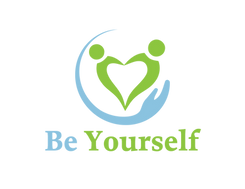Did you know that ANYONE can call themselves a counsellor?
- Nicolas Spooner

- Mar 25, 2019
- 3 min read
That's right......
Literally anyone can just decide one day that they are a counsellor and call themselves one. They can advertise their service and take on clients. They can charge just the same as all the rest.
'Counsellor' is not a protected term and thus it is not a legal requirement to have any formal qualifications to practice whilst calling yourself a counsellor or psychotherapist.
However, without any formal, recognised qualification in counselling, such as a Level 4 Diploma or degree, you would not be able to join one of the recognised bodies, such as the British Association for Counselling and Psychotherapy (BACP). In order to be affiliated with such an organisation members will have had to spend at least 3 years on a comprehensive course learning about all aspects of what it's like to be a counsellor and how to ethically look after clients' wellbeing while undertaking their therapy.
After completing the course they can they apply to become a full member of the organisation and, in some cases, also pass an additional 'Certificate of Proficiency' to ensure the competency of the individual.
If you see that a counsellor is a member of the BACP (or similar organisation) then they have formal qualifications , will be insured and also undergo regular supervision of their practice to ensure the highest standard of service to the clients. It will also mean that they have stated they will abide by, and work within, the ethical framework laid down by that organisation which constantly reviews the best practices that should be employed by it's members and communicates with them regularly.
To remain as a member then the counsellor has to be consistently improving their knowledge and skills by means of regular and continuous professional development. Any member can by asked to provide proof of this aspect of their ongoing training at any time by the regulating body so the qualified counsellor is someone who is regularly attending talks, lectures and conferences, reading journals and literature to keep up to date with all that is going on within the profession.
Although it is not illegal to call yourself a counsellor without qualifications, it is highly unethical. If you find yourself considering a counsellor and are not 100% certain that they are qualified then ask to see their certificate of qualification and membership number for their regulatory body. This measure probably won't be necessary in most cases if you sourced your potential counsellor via a reputable register or directory online, which almost certainly required proof of the paperwork to even include their profile on the site.
One last thing to remember is that just because a counsellor is qualified, doesn't automatically ensure they will be excellent for you. There are many things to consider and these are discussed in this blog post about how to choose the right counsellor. But when somebody is a member of a recognised body you have greater peace of mind. There is a place to turn to if you feel you have a complaint about the service you have received. There is someone that will look at the practice of the counsellor and take action if necessary.
At the end of the day, you just have to be sensible but don't take anything for granted. If you want to be sure and see evidence that the counsellor is qualified, just ask. I promise you they won't be offended.......





Comments